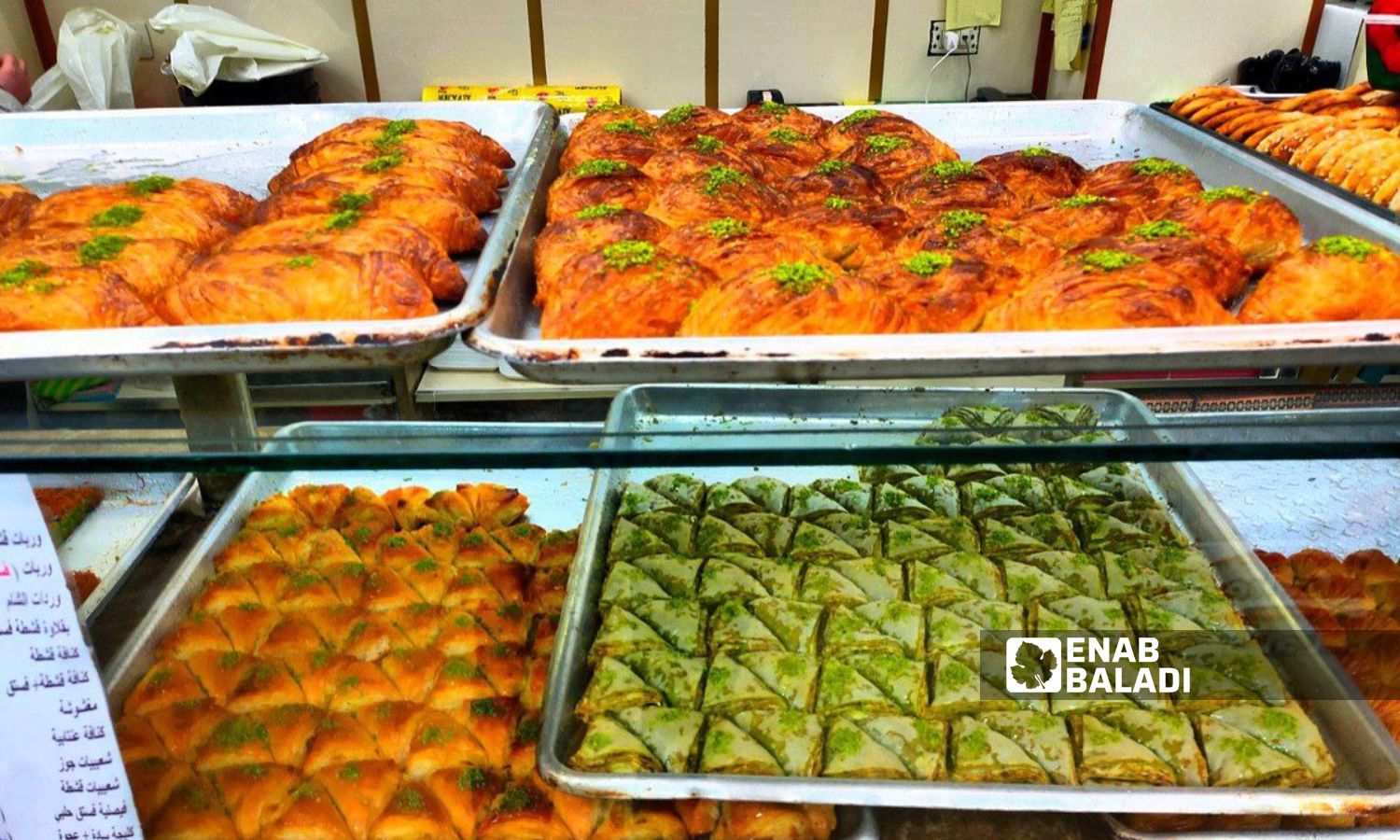



Al-Hasakah – Majd al-Salem
Purchasing sweets has become one of the luxuries limited to certain well-off groups in the midst of the difficult economic conditions faced by the inhabitants of al-Hasakah governorate in northeastern Syria, coupled with the recurring price hikes.
The surge in prices has affected sweets of all kinds, including popular ones such as “Mushabak” and “Awameh,” with a single “Mushabak” piece selling for 5000 Syrian pounds, and a piece of “Qatayef” for 8000 Syrian pounds.
“We now buy sweets by the piece, and most of the time we enter the shops, ask about the prices, and leave without buying a single piece of sweets,” said Saad al-Hamid (36 years old), a resident of the city of Qamishli and a worker in the al-Hal popular market, regarding the inability to afford sweets as before due to their rising prices.
Al-Hamid’s children constantly ask him to buy them sweets, he says, but the soaring prices often prevent him from fulfilling their wishes.
Al-Hamid earns a daily wage of 20,000 Syrian pounds from his job, while the price for one kilo of the least expensive type of sweets is about 40,000 pounds, which equals the wage of two days of hard labor.
The daily life necessities such as bread, food, healthcare, and others make al-Hamid buy sweets for his family only on “very special” occasions, in his words.
Fatima al-Azou (39 years old), a resident of al-Hasakah city and an employee in one of the private schools, told Enab Baladi that most low-income earners buy popular sweets from street stalls, popular shops, and kiosks spread at road intersections or in popular neighborhoods.
However, this category of people dares not enter shops with clear glass fronts and dazzling lighting, filled with trays containing various and assorted shapes of sweets, due to their expensive prices.
Al-Azou considers buying sweets from these shops an additional luxury when compared to the need to secure basic foodstuffs for the family, such as oil, sugar, vegetables, and more.
During a tour in the markets of Qamishli city, Enab Baladi’s correspondent monitored the prices of the most famous types of Arab sweets, with some reaching half a million Syrian pounds per kilo, such as “Ballouriya” made with Arabian margarine.
Meanwhile, the price of a kilo of “Baklava” with vegetable ghee reaches 180,000 pounds, with Arabian margarine up to 350,000 pounds, a kilo of “Harissa” with Aleppo pistachios up to 120,000 pounds, and “Maamoul” up to 150,000 pounds.
The price of a single piece of “Shaibiyat with cream filling” is 8000 Syrian pounds, and those filled with walnuts are 10,000 pounds.
Munther al-Omar (42 years old), a worker in a sweet shop in Qamishli, told Enab Baladi that the reason for the high prices is the significant cost of primary materials such as sugar, flour, oil, and the scarcity of fuels such as gas, which is essential for operating the ovens.
The price of an industrial gas cylinder is about 400,000 Syrian pounds and suffices for only one day, while the price of a 50-kilogram bag of sugar is 650,000 pounds.
Add to that the rising labor wages and other operating costs, along with the continuous devaluation of the Syrian pound against the dollar.
Al-Omar pointed out that, apart from days of feasts and New Year’s, sales are low, considering that residents now view sweets as a luxury that they can enjoy only during certain occasions.
if you think the article contain wrong information or you have additional details Send Correction